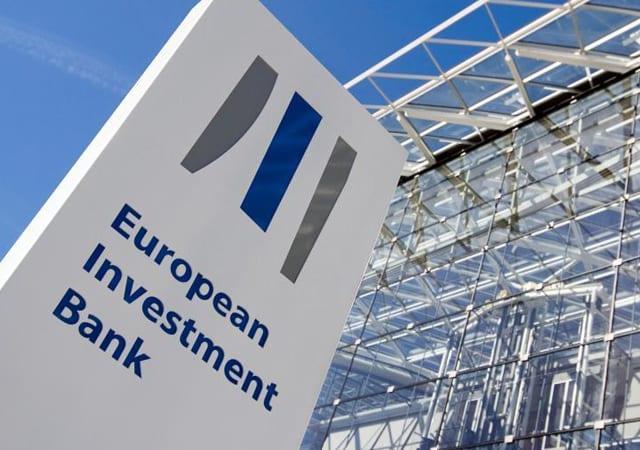The European Investment Bank (EIB) has provided the World Health Organization (WHO) with €1 million (approximately BIRR 61 million) for a technical assistance operation that will strengthen primary healthcare system in Ethiopia.
The Ethiopian government plans to accelerate progress towards universal health coverage and to build resilience of its health system through a strong primary healthcare base by 2024.
The technical assistance will be implemented by the World Health Organisation in partnership with the EIB. This will allow the UN health body to leverage local, regional and international expertise and resources for improving primary health care in the country. It will also potentially support the implementation of the Growth and Transformation Plan II of the Government of Ethiopia, which identifies” Envisioning Ethiopia’s Path towards Universal Health Coverage through Strengthening Primary Health Care by 2035″ as one of the key priorities.
The technical assistance provided by the EIB also paves the way for further action by the bank and other institutions to support the health system of Ethiopia. Earlier this year, President of the European Investment Bank Werner Hoyer, joined Tedros Adhanom Ghebreyesus, Director General of WHO alongside the European Commission and fellow heads of multilateral development banks to launch a new health impact platform to improve health system resilience with a focus on primary healthcare in Sub-Saharan African countries.
It comes after a pledge from the EIB where President Hoyer said: “The European Investment Bank will make available at least €500 million to support health systems strengthening and more specifically primary health care in Sub-Saharan African countries. This aims to mobilize a total of at least €1 billion of investments, structured through a tri-alliance with the European Commission and WHO, to support the continent’s healthcare.”
This latest support from the EIB is in line with the European Union’s Global Gateway strategy that seeks to strengthen healthcare capacities globally with focus on facilitating investment in health infrastructure and improving the regulatory framework for more effective, local production of medicines as well as application of better technologies.
Leyla Traoré, the Head of the EIB Representative Office in Ethiopia said that access to quality healthcare is very important to a fast-growing economy like Ethiopia’s because it reduces the disease burden and improves health outcomes. This in turn leads to increased productivity and economic growth of the nation.
“As the EIB, we are committed to supporting Ethiopia build and strengthen its resilience in its healthcare industry. Working with WHO and the Federal Government of Ethiopia, we shall use effective financing tools to invest in the areas which they shall identify to benefit from a profound and positive impact,” she added.
Speaking on the EIB-WHO partnership, the Acting Representative of WHO Ethiopia Country Office, Dr. Nonhlanhla Dlamini, emphasized the urgent need to strengthen the primary health care units as first responders for emergency and critical care services and establish referral linkages with other parts of the country’s tiered health system.
“WHO is proud to partner with EIB and Team Europe on this important initiative which will help ensure that all Ethiopians have access to quality health care, regardless of their location or income,” she added.
“The partnership with EIB aims at boosting priority investments in education and employment of health personnel – human capital, infrastructure, water, hygiene, and sanitation and thus effectively leverage WHO’s presence in the country, its technical capabilities, and its advisory role in guiding investments of the EIB in the health sector,” Dr. Faraz Khalid, a research officer with the Strengthening of Primary Health Care programme at WHO and the leader of the mission said.
Anchored on the Health Extension Program – a flagship community-based primary health care delivery platform introduced in 2003, Ethiopia’s primary health care units comprise 17,550 health posts and 3,735 health centres nationwide. By efficiently using these, the second Health Sector Transformation Plan of Ethiopia 2020/2021-2024/25 aims to advance towards universal health coverage.
The primary health care unit is the smallest division in the Ethiopian health tier system and is the unit most accessible to the general population and communities within the health system. It provides essential healthcare services, including preventive, curative, and rehabilitative services. “By serving as the cornerstone of primary healthcare provision, these units have helped millions of people in Ethiopia, especially those in rural communities, achieve equitable access to healthcare,” said Dr. Lia Tadesse, the country’s minister for health.
The EIB Technical Assistance operation will contribute towards achieving the UN Sustainable Development Goal (SDG) 3 of healthy lives and well-being; SDG 10 of reducing inequality; SDG 17 of sustainable development, and to the pillar of the agenda 2030: “Leave No One Behind” ensuring that the population in the country benefits from a resilient health system, including vaccines, diagnostics and therapeutics.
The European Investment Bank has been active in Ethiopia since 1984 covering both public and private sectors. Over the years, the Bank has signed 31 operations for an aggregate amount of €490M (approximately BIRR 30 billion) focusing in particular on the financial sector, energy, agriculture and water infrastructure as well as private sector investment. The Bank is represented in Ethiopia through its office in Addis Ababa.


 Forex3 weeks ago
Forex3 weeks ago
 Naira3 weeks ago
Naira3 weeks ago
 Billionaire Watch2 weeks ago
Billionaire Watch2 weeks ago



 Naira3 weeks ago
Naira3 weeks ago






 Naira2 weeks ago
Naira2 weeks ago




 Naira1 week ago
Naira1 week ago




 Naira4 weeks ago
Naira4 weeks ago






 Naira1 week ago
Naira1 week ago











